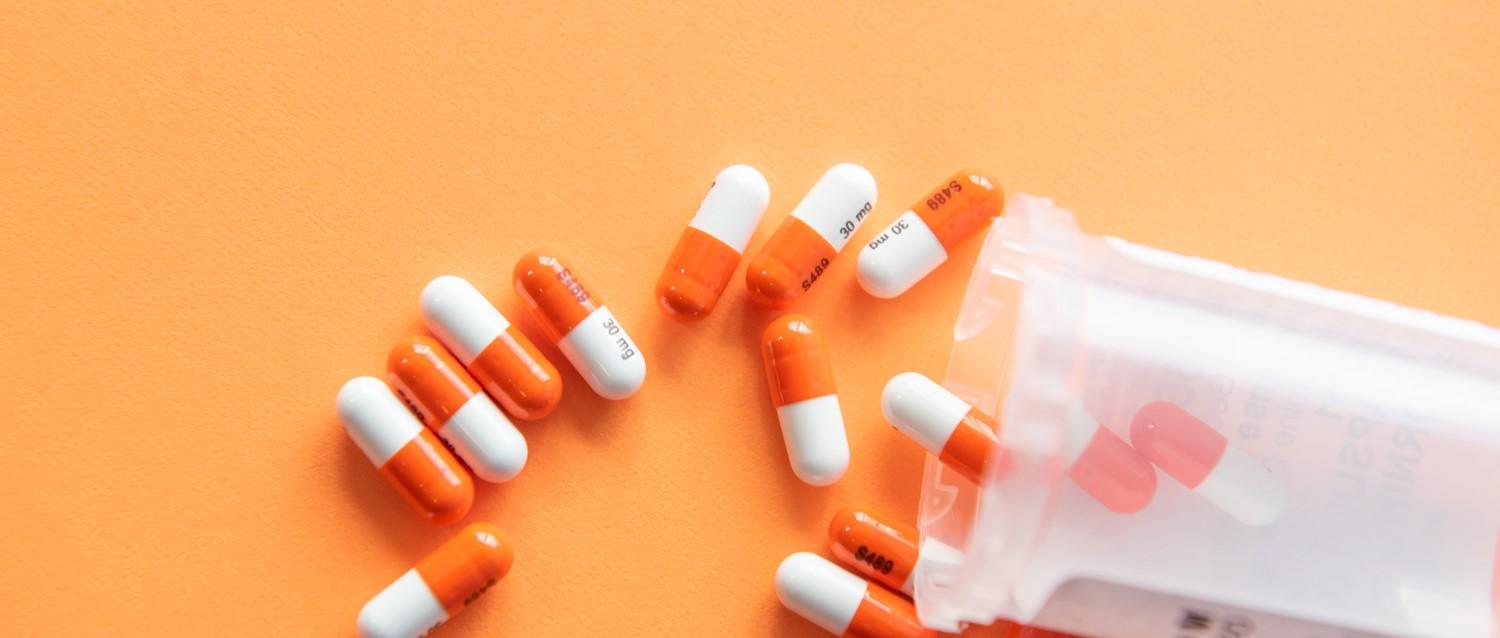
The latest treatments for COVID-19
Peer reviewed by Dr Sarah Jarvis MBE, FRCGPLast updated by Andrea DowneyLast updated 17 Nov 2020
- DownloadDownload
- Share
As England continues through its second coronavirus lockdown and infection numbers across the globe are climbing, researchers are working tirelessly to find the best treatment for COVID-19. There are currently hundreds of treatments being trialled in a bid to curb the spread of the virus and save lives.
In this article:
But what are these treatments, and which ones are looking the most promising? Here's a look at the main treatments being trialled.
In Britain one of the biggest trials into coronavirus treatment is the Randomised Evaluation of COVID-19 Therapy (RECOVERY) trial, led by the University of Oxford.
It is taking place in 176 hospital sites across the UK and has so far recruited more than 16,000 patients.
There are currently six suggested treatments being tested by the RECOVERY team, the latest being aspirin which was added to the trial on 6th November.
The most clinically effective so far is a steroid called dexamethasone which has been found to reduce deaths by up to one third.
Continue reading below
Aspirin
Patients with COVID-19 are at higher risk of blood clots, which can be fatal. As aspirin is known for its anti-clotting properties researchers have decided to add it to the treatment trials.
About 2,000 patients will be randomly selected to receive a daily dose of aspirin, with results compared to a similar number of patients who receive standard care without the drug.
Professor Peter Horby, from the Nuffield Department of Medicine and co-chief investigator of the RECOVERY trial, explained. "We felt it was particularly important to add aspirin to the trial since there is a clear rationale for believing that it might be beneficial and it is safe, inexpensive and widely available.
"We are looking for medicines for COVID-19 that can be used immediately by anyone, anywhere in the world. We do not know if aspirin is such a medicine but we will find out."
Steroids
The use of steroids to treat COVID-19 is also being investigated by the RECOVERY trial, specifically a dose of dexamethasone.
Dexamethasone is most commonly used to treat severe allergies, severe skin conditions and autoimmune disease. It's a type of steroid called a corticosteroid, a copy of a hormone the body produces naturally, which is known to reduce inflammation.
In June the RECOVERY trial reported that dexamethasone could reduce COVID-19 deaths by up to a third.
The steroid was tested on more than 2,100 patients who received a daily dose for 10 days. It was found to reduce deaths by a third in ventilated patients and by a fifth in patients receiving oxygen as their only treatment.
The risk of death was highest in patients who had not received the treatment and were on ventilation, results showed.
Professor Martin Landray, one of the chief investigators for RECOVERY, said at the time, "These preliminary results from the RECOVERY trial are very clear - dexamethasone reduces the risk of death among patients with severe respiratory complications.
"COVID-19 is a global disease - it is fantastic that the first treatment demonstrated to reduce mortality is one that is instantly available and affordable worldwide."
The RECOVERY programme is now only recruiting children for trials of low-dose dexamethasone. The steroid is recommended as a treatment for COVID-19 by the NHS.
Continue reading below
An antiviral
The antiviral drug remdesivir was hailed at an early stage of the pandemic as a potential treatment for COVID-19. By early June, NICE had published guidance on who it should be considered for, stating that 'Remdesivir when compared with placebo was associated with clinical improvements in some of the outcomes and fewer serious adverse events'.
But despite a placebo-controlled trial showing that remdesivir shortened recovery time by a third in some patients, a major trial by the World Health Organization, the Solidarity trial, found that it had little or no impact on survival. Work continues to find out whether these conflicting results could be the result of using the drug in different populations or at different stages in the infection.
A common antibiotic
Another treatment being trialled by the RECOVERY programme is azithromycin, an antibiotic commonly used to treat bacterial infections such as pneumonia.
Antibiotics are usually used as a treatment for bacterial infections but some studies have shown azithromycin to have antiviral properties.
In June researchers published an overview of azithromycin's benefits in the journal Nature Public Health Emergency Collection, recommending it be investigated for coronavirus treatment.
This antibiotic has also been tested in other large-scale trials, including COALITION II across 57 medical centres in Brazil. The drug was tested on almost 400 patients confirmed to have coronavirus but was not found to have an impact on health outcomes.
Professor Rupert Pearse, a spokesperson for the Faculty of Intensive Care Medicine, explains: "Early in the pandemic it was thought to have useful anti-inflammatory effects on COVID-19 but COALITION II trial from Brazil showed no benefit."
But results from separate trials of the drug are yet to be published, including RECOVERY, so it's still too early to say if it is a successful treatment or not.
Continue reading below
An anti-inflammatory
Anti-inflammatory drug tocilizumab is also being investigated as a treatment for coronavirus. The drug is most commonly used to treat rheumatoid arthritis.
It is known for its immunosuppressive capabilities, meaning it helps reduce the body's natural immune response when it could hinder a person's health. For example, immunosuppressants are commonly used following transplant surgery to reduce the risk of the transplanted organ being rejected by the body.
Researchers began looking at tocilizumab as a way to reduce inflammation caused by COVID-19. Professor Pearse explains that it is hoped the drug can suppress whole-body inflammation.
But he says so far medium trials "have not shown benefit".
A study published in The Lancet in June found patients who received tocilizumab had a significant reduction in the risk of invasive mechanical ventilation, but that overall the benefits of the treatment were low.
We are still awaiting results from the RECOVERY trial of tocilizumab. Again, it is likely too early to say if it will be an effective treatment or not.
Patient picks for COVID-19

Chest and lungs
COVID-19: how to talk to children about the coronavirus pandemic
As parents, our natural instinct is to protect our children. But the coronavirus pandemic presents a unique challenge. We need our children to understand the importance of extra hygiene measures, and why they can't see their friends right now. But how can we do this without causing additional anxiety about COVID-19?
by Gillian Harvey

Chest and lungs
COVID-19
COVID-19 is an infectious disease caused by a virus that was first identified in December 2019 in Wuhan, China. This leaflet deals with the symptoms, causes and treatment of COVID-19.
by Dr Doug McKechnie, MRCGP
Antibodies
Editor’s note
Dr Sarah Jarvis, 18th January 2021
No benefit from donated antibodies
One of the treatments being examined in the RECOVERY trial was convalescent plasma - plasma cells collected from donors who had recovered from COVID-19. The theory was that the antibodies this plasma contained might help protect currently infected patients from serious complications of coronavirus.
The independent Data Monitoring Committee reviewed the early results of the trial in January 2021. Unfortunately, they showed no difference in the likelihood of dying from COVID-19 between patients given convalescent plasma and patients who did not get it.
As a result, no more patients are being recruited into this part of the trial and no more patients will be given convalescent plasma.
Plasma
The final treatment being investigated by the RECOVERY programme is convalescent plasma - plasma cells collected from donors who have recovered from COVID-19. These cells contain antibodies that can help the body protect itself from coronavirus.
The plasma can be transfused into people who are struggling to develop their own immune response to the virus. Although there is some promising evidence of patient benefit, its effectiveness needs to be tested through robust clinical trials before it can be provided for general use.
Convalescent plasma is currently being collected by NHS Blood and Transplant services. The first transfusion of convalescent plasma through RECOVERY took place at the Royal Manchester Children's Hospital in June.
"Plasma from patients who have recovered from COVID-19 may help to speed up clearance of the virus from those who are currently suffering from the disease and improve their chances of recovery. But we can't be certain unless we compare it to no additional treatment beyond the usual standard of care received by all patients," says Professor Richard Haynes, clinical trial lead for the RECOVERY trial.
"We are very grateful to those who are donating plasma and to the trial participants who will enable us to find out whether plasma is effective."
On November 9th a RECOVERY trial patient became the first person in England to receive convalescent plasma and then donate some himself.
But a study published in the British Medical Journal in October suggests convalescent plasma is ineffective for the treatment of coronavirus. Small benefits were found for patients suffering fatigue and shortness of breath, but there was "no benefit associated with convalescent plasma in patients admitted to hospital with moderate COVID-19".
As the RECOVERY trial is still ongoing it is too early to say how effective the use of convalescent plasma could be in the fight against COVID-19.
The best prevention
These are just a handful of the thousands of treatments currently being investigated, but the most effective tool we may have in the fight against coronavirus is a vaccine.
That's because a vaccine offers protection before a person has contracted the virus, unlike a treatment that can only be administered once a person has COVID-19. It is proactive rather than reactive.
On November 9th pharmaceutical companies Pfizer and BioNTech announced their vaccine candidate was 90% effective in preventing COVID-19. The mRNA-based vaccine, which means it's based on proteins specific to coronavirus, has been tested on 43,500 people in six countries with no safety concerns raised.
And on 16th November, interim results from Moderna suggested that their vaccine was almost 95% effective in preventing COVID-19. The trial has more than 30,000 participants from across the United States.
But a vaccine is no silver bullet. We all need to keep on keeping each other safe by social distancing, following government guidelines and wearing masks where required. Researchers on treatment and vaccine studies are working hard to tackle the pandemic - but we can all do our bit at home to limit the spread of coronavirus so life can get back to normal as quickly as possible.
Article history
The information on this page is peer reviewed by qualified clinicians.
17 Nov 2020 | Latest version

Ask, share, connect.
Browse discussions, ask questions, and share experiences across hundreds of health topics.

Feeling unwell?
Assess your symptoms online for free